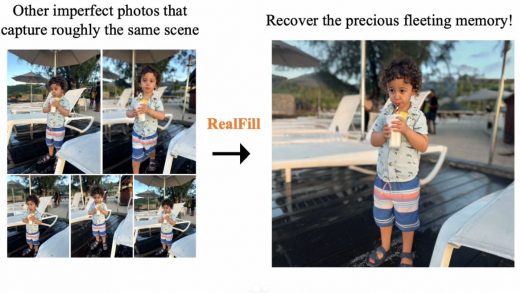:format(webp)/https://www.thestar.com/content/dam/thestar/entertainment/movies/2022/12/15/guillermo-del-toro-says-shooting-in-toronto-is-great-except-for-the-construction-and-winter/guillermo_del_toro.jpg)
Oscar winner Guillermo del Toro is widely considered to be an honorary Torontonian and rightfully so. The filmmaker has been in Toronto for more than a decade, shooting two to three projects a year.
To him, Toronto is the perfect city, “in the sense that it’s very livable, except for the construction and winter,” he laughed.
Del Toro was in Toronto on Sunday for a special screening of his new Netflix film, “Guillermo del Toro’s Pinocchio,” which is already garnering awards season buzz. The film was nominated for three Golden Globes, including Best Animated Feature.
“The first time I came here was in 1996 and I loved the crew. It was a horrible experience with the studio for ‘Mimic,’ but it was a great experience with the crew that I came back for ‘Pacific Rim,’” he said in an interview, referring to his time working alongside the Weinsteins at Miramax.
The city offers “great restaurants, great bookstores, great galleries, great cultural life, really amazing crews … I live about five minutes from the studio so I take my car and come back for lunch.”
“Guillermo del Toro’s Pinocchio” feels a lot more personal to him; he not only co-directed the film alongside Mark Gustafson, he co-wrote it with Patrick McHale.
“I’m always very intrigued by stories that question what it is to be human. ‘Frankenstein’ and ‘Pinocchio’ are my main favourites. It’s almost like one of the most universal stories,” del Toro said.
“‘Pinocchio’ was the second or third movie I saw with my mum as a kid. And the first movie I thought captured how scary childhood felt. It didn’t feel like the cartoons on TV; it didn’t feel like it was happy and funny. It felt sort of dire and scary.”
The Mexican-born filmmaker radiates joy and earnestness in his conversation about filmmaking and stop-motion animation. He believes it’s not a genre just for families and children; hence, he treats the material like any other movie.
He said kids need to be told the truth about the complexity of the world without any sanitization. The film’s darker themes about life, death and loss are explored with honesty and care.
“Guillermo del Toro’s Pinocchio” reimagines the classic Carlo Collodi tale of the fabled wooden boy as Geppetto brings Pinocchio to life after the death of his son, Carlo. Together, they go on an enchanted adventure that reveals the power of love between a parent and a child.
“The movie is a very elaborate piece of filmmaking, but an incredibly pure act of love,” del Toro said.
It is indeed a beautiful love letter that explores the parent-child dynamic with heart and humour, and Del Toro understands this theme very well.
“I think that it is such a natural story for me because I had a very interesting relationship with my dad. He was very loving in his own way, but he could be really strict and aloof, and in a second he could change. I made it a point to say, ‘I’m gonna do the opposite of what he did so I will not make the same mistakes with my kids.’ But when my kids became teenagers, they told me I was doing the exact same thing that he did! And I realized I was repeating the same mistake,” he laughed.
“We tend to inherit mistakes and I think Geppetto is idealized in Carlo and not looking at who Pinocchio is. The movie takes him through that journey until he understands how much he loves Pinocchio and he is his son as much as Carlo.”
Del Toro believes many will call their parents right after watching this movie, as did I, and he says that it is the desired effect and vice versa. “My hope is that parents call their kids too and say ‘I’m sorry.’”
For him, this film is more than an apology, it’s about forgiveness. “An apology finishes a discussion and forgiveness starts it. It’s so beautiful to be able to talk about these things with your parents or your kids.”
Del Toro lost his father five years ago and he was able to make peace with that, which in turn helped deepen the screenplay. It’s no wonder that the film has the fingerprints of fatherhood, grief and loss.
“I think it’s going to sound very corny, but when I’m writing I cry. It affects me,” del Toro said. “Every time we see the movie, and we were in the mixing room and in the colour correction, Mark, myself, the cinematographer or the mixers, we cry. There is a purge that happens. The movie sort of works in that way and it helps every time.”
Del Toro is a highly regarded filmmaker whose work often explores humanity in all sorts of monsters and creatures, from “Pan’s Labyrinth” to his Oscar-winning “The Shape of Water.”
To him, they are as real as if they existed physically, he said. He had a lot of imaginary friends growing up and, while he knew they weren’t real, they felt real. “There is a certain … I wouldn’t say innocence, but there’s a certain purity to the way I see these things. That is very Mexican … We have a very permeable membrane with magic.”
It’s clear the 58-year-old is an old soul who speaks profoundly about love and loss, and it’s evident in his films — he admitted he felt 70 when he was only seven years old.
“I think that the biggest lesson in this entire life is to learn not to cope, but to welcome loss. When you don’t want to hold onto something is when you are finally free. Every time we want to hold onto something, we belong to that. When I was a kid and a young director, I had a huge collection of things. And now I’m 58 and I want to get rid of everything. I feel like it owns me.”
“Pinnochio” echoes themes he often explores with his other films: religion, childhood and fascism.
“I think we are broken by family and by institutions when we are young and then you try to make an art form of that,” he said. The example he gives is that of kintsugi, the Japanese art of repairing broken pottery with resin and gold. “The scars are the beauty of the object and I think that’s what art does for our soul. We’re broken into many pieces as kids … So the scars I have come from violence and religion and authoritarianism, totalitarian thought, etc,” he said candidly.
Even after another successful film release, Del Toro has no plans to slow down: he’s working on a live-action film right now and then will do a slow-motion adaptation of a novel by a Nobel Prize winner. He will be shooting his next film in Toronto.
JOIN THE CONVERSATION
:format(webp)/https://www.thestar.com/content/dam/thestar/entertainment/movies/2022/12/15/guillermo-del-toro-says-shooting-in-toronto-is-great-except-for-the-construction-and-winter/pinocchio_2.jpg)



